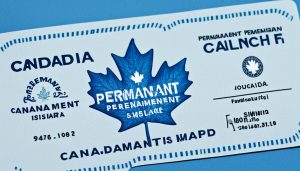Are you thinking about buying a house in Ontario? Congratulations! Becoming a homeowner is a significant milestone in anyone’s life, and it can be an exciting and fulfilling experience. However, navigating the process of buying a house can be quite daunting, especially if you’re a first-time buyer. That’s where this step-by-step guide comes in handy. Whether you’re a seasoned investor or a first-time buyer, this comprehensive guide will walk you through the process of buying a house in Ontario. From determining your budget to finding the perfect property and closing the deal, we’ve got you covered. So, let’s dive into the details and discover the ins and outs of how to buy a house in Ontario!
Understanding Homeownership in Ontario
Considering the steps to buying a house in Ontario involves a thorough understanding of homeownership responsibilities, costs, and market dynamics. This process isn’t just about fulfilling a dream; it’s about making informed financial and emotional decisions to ensure stability and satisfaction.

1. Deciding if Homeownership is Right for You
Before diving into the home buying process, it’s essential to evaluate if purchasing a home in Ontario aligns with your lifestyle, financial goals, and long-term plans. Monthly housing costs should not exceed about 39% of your gross monthly income, according to the Canada Mortgage and Housing Corporation (CMHC). Additionally, your total monthly debt, encompassing mortgage payments and other debts, should not exceed 44% of your gross monthly income. Assessing these factors will help you determine if buying a house is a feasible and prudent option for you.
2. Comparing Renting vs. Buying
Deciding between renting and purchasing a home in Ontario requires comparing the benefits and drawbacks of each option. Renting offers flexibility and fewer maintenance responsibilities, which might be attractive in a volatile job market or if you’re not ready for a long-term commitment. Conversely, buying a home provides stability, potential tax benefits, and an opportunity to build equity over time. When contemplating these options, factor in your financial readiness and future plans.
3. Emotional and Financial Preparedness
Homeownership demands significant emotional and financial readiness. Beyond the sizable down payment, prospective homeowners need to prepare for upfront costs, which can range between 1.5% and 4% of the purchase price. Programs like the Home Buyers’ Plan (HBP) allow first-time homebuyers to withdraw up to $35,000 from an RRSP tax-free, with a proposed increase to $60,000 after April 16, 2024. The First Home Savings Account (FHSA) also permits saving up to $40,000 tax-free for a home, with an annual contribution limit of $8,000. Such initiatives can aid in easing the financial burden, but being prepared for the responsibilities of homeownership is crucial.
Below is a comparative table to summarize key differences:
| Criteria | Renting | Buying |
|---|---|---|
| Flexibility | High | Low |
| Maintenance Responsibility | Usually Landlord | Homeowner |
| Initial Costs | Low (Deposit) | High (Down Payment, Closing Costs) |
| Building Equity | None | Yes |
| Tax Benefits | None | Potential Tax Benefits |
Navigating the emotional and financial landscape of homeownership is an essential step in the journey of purchasing a home in Ontario. Recognizing these facets helps in making a well-rounded decision, ensuring long-term satisfaction and financial well-being.
Saving for a Down Payment
For many prospective homebuyers in Ontario, saving for a down payment is a significant step towards homeownership. Understanding the minimum down payment requirements ontario and the benefits associated with a larger down payment can greatly influence your financial decisions. Additionally, various government programs and incentives are available to ease the burden of saving for that crucial down payment.
1. Minimum Down Payment Requirements
The down payment requirements ontario are tiered based on the purchase price of the home:
- For homes under $500,000, the minimum down payment is 5% of the purchase price.
- Homes priced between $500,000 and $999,999 require a 5% down payment on the first $500,000 and 10% for any amount above $500,000.
- For homes priced at $1 million or more, a minimum down payment of 20% is required.

For example, a homebuyer purchasing a home priced at $490,000 would need a down payment of $24,500. For a property priced at $800,000, the minimum down payment increases to $55,000.
2. Benefits of a Larger Down Payment
A larger down payment comes with several advantages. Firstly, it reduces the amount you need to borrow, which can result in substantial savings on interest over the life of the mortgage. Additionally, larger down payments can lower mortgage loan insurance premiums, offering further cost reductions. For instance, a 5% down payment on a $400,000 home could lead to a total cost of $643,649, whereas a 20% down payment could bring that total down to $584,979.
| Down Payment | Total Cost |
|---|---|
| 5% on $400,000 | $643,649 |
| 10% on $400,000 | $625,712 |
| 20% on $400,000 | $584,979 |
3. Government Programs and Incentives
Various government programs are designed to help buyers meet the down payment requirements ontario. The Home Buyers’ Plan (HBP) allows first-time homebuyers to withdraw up to $35,000 from their RRSPs, and this limit is set to increase to $60,000 after April 16, 2024. There are also incentives like the First Time Home Buyer Incentive, which can offer funding assistance, and provincial and municipal Land Transfer Tax rebates that can substantially reduce the financial burden for new buyers.
Taking advantage of these programs and following effective homebuyer tips ontario can make the dream of owning a home more attainable for many Ontarians.
Building Your Credit Score & Financial Stability
Achieving financial stability in home buying and enhancing your credit score is essential in Ontario’s competitive housing market. A robust credit profile can significantly influence loan approval and the interest rates offered by lenders. Understanding the dynamics of credit scores and the importance of maintaining financial health is vital for prospective homebuyers.
In Canada, credit scores typically range from poor (300-574) to excellent (741-900). To secure favorable mortgage terms, aiming for a credit score in the “Good” (713-740) or “Excellent” (741-900) range is beneficial. Key factors affecting your credit score include payment history (35%), credit utilization (30%), credit history (15%), credit mix (10%), and credit checks (10%). Keeping your credit utilization at or below 30% is a golden rule to adhere to for better scores.

Missed payments can have long-lasting impacts, staying on your report for up to six years and potentially lowering your score by as much as 100 points. It’s advisable to monitor your credit regularly through services like Borrowell, which offers free credit scores, credit building solutions, and personalized financial advice in Canada. Increasing your credit card limits while maintaining your balance can also help reduce your credit utilization rate.
Maintaining stable employment and a consistent income stream is crucial for financial stability in home buying. Lenders often require proof of stable income to assess your ability to manage mortgage repayments and unexpected expenses like repairs and property taxes. If you are self-employed or on a contract, setting aside an emergency fund and providing a letter of employment may be necessary to demonstrate financial readiness.
It’s equally important to be prepared with necessary documentation such as pay stubs, bank statements, and proof of down payment source. This not only facilitates a smoother loan approval process but also demonstrates your financial discipline.
Private lenders, though an option, come with higher interest rates and fees compared to traditional lenders. They focus more on the equity built in a property rather than the borrower’s credit score. Hence, ensuring a considerable down payment and strong credit history can leverage better terms with conventional lenders.
In Ontario, getting pre-approval can establish a clear budget and make you more attractive to sellers. This step signals serious intent and financial preparedness, crucial for a successful home-buying process.
Through disciplined financial practices and awareness of credit score dynamics, building credit Ontario and achieving financial stability in home buying can be seamlessly integrated into your journey towards homeownership.
Checking Your Affordability
When embarking on your Ontario house hunting journey, it’s crucial to assess your financial readiness. Understanding the necessary down payment and mortgage factors, as well as calculating key debt service ratios, will provide a clear picture of your financial capabilities. Setting a realistic budget ensures that your dream home is financially sustainable.
1. Down Payment and Mortgage Factors
In Canada, the down payment requirements vary based on the home’s price:
- Minimum 5% for homes up to $500,000.
- 5% on the first $500,000 and 10% on the portion between $500,001 and $1 million.
- 20% for properties priced at $1 million or more.
Mortgage default insurance, ranging from 2.8% to 4% of the total mortgage, is necessary for down payments under 20%, with premiums included in monthly mortgage payments. These factors must be considered when checking affordability for house purchase in Ontario.

2. Calculating Debt Service Ratios
The Gross Debt Service (GDS) ratio and Total Debt Service (TDS) ratio are essential for evaluating your mortgage affordability:
- GDS ratio should be at or under 35% of your pre-tax household income.
- TDS ratio should be at or under 42% of your pre-tax household income.
In broader Canadian terms, the GDS ratio ranges from 32-39%, while the TDS ratio spans 40-44%. These percentages help ensure that your housing costs and debt obligations are manageable given your income.
3. Setting a Realistic Budget
Creating a realistic budget is a vital step in Ontario house hunting. First, calculate your monthly housing expenses, including mortgage payments, insurance, property taxes, and maintenance costs. Factoring in lifestyle changes and future financial goals will help keep your housing expenses within comfortable limits. It’s wise to consult with a financial advisor or mortgage professional who can provide tailored advice based on your financial situation, helping you navigate the complex Canadian real estate market.
How to Buy a House in Ontario? From Search to Purchase
Buying a property in Ontario entails navigating through various steps, starting from choosing the right location to making an offer and negotiating the terms. This guide provides key insights into each of these steps, ensuring a smooth home-buying experience in the Ontario real estate market.
1. Choosing the Right Location
When buying a property in Ontario, location plays a crucial role. Factors such as proximity to work, quality of local schools, and access to amenities like parks, shopping centers, and public transport should be considered. For families, living near good schools is often a priority. Furthermore, evaluating neighborhood safety and future development plans can impact long-term satisfaction and property value.
2. Navigating the Home Search
The home search in the Ontario real estate market involves leveraging various resources to find suitable properties. Utilizing online real estate platforms and collaborating with real estate agents can enhance your search efficiency. Additionally, property search systems in Ontario allow you to search by PIN, street address, or registration number, providing detailed maps, Parcel Registers, and other critical information. Users can also buy Parcel Maps or proceed to order Parcel Registers for specific PINs, which offers a comprehensive understanding of the properties of interest.
3. Making an Offer and Negotiating Terms
Once you have identified a potential home, making a compelling offer in the competitive Ontario real estate market is essential. Consider the property’s current value, recent sales in the area, and any unique attributes that may affect its pricing. Effective negotiation involves balancing the market conditions with the buyer’s financial capabilities and interests. Engage in transparent communication with the seller and be prepared for counteroffers to ensure a mutually agreeable transaction.
Thorough research, a well-strategized approach, and understanding the intricate details of the Ontario real estate market are pivotal for a successful home-buying journey. Whether you are a first-time buyer or looking to upgrade, these steps provide a solid foundation to achieve your dream of homeownership in Ontario.
Conclusion
Buying a house in Ontario is a multifaceted journey that necessitates thorough preparation, strategic financial planning, and informed decision-making. Beginning with the contemplation of homeownership, this guide emphasizes the importance of evaluating whether buying is the right step for you. By comparing the pros and cons of renting versus buying, and assessing your emotional and financial readiness, you can start on a firm footing.
Saving for a down payment in Ontario involves understanding the minimum requirements, recognizing the benefits of a larger down payment, and exploring various government programs and incentives. Establishing your credit score and financial stability is paramount, as lenders will closely examine your debt-to-income ratio and monthly income to determine your mortgage eligibility. Ensure that your monthly mortgage payment does not exceed 30-40% of your gross monthly income.
When it comes to finding a home in Ontario, use pre-approval for a mortgage to define a realistic budget and explore different mortgage options, such as fixed-rate, variable-rate, and hybrid mortgages. The closing costs, including significant land transfer taxes and legal fees, should be factored into your budget to avoid surprises. Conducting thorough property inspections and researching property taxes, title searches, and neighborhood qualities is crucial for making informed decisions. Finally, engaging experienced real estate agents and considering local amenities, transportation access, and neighborhood regulations will enhance your long-term investment.
Embarking on the path to homeownership in Ontario can be a rewarding experience if approached with diligence and care. By following these steps, you can navigate the complexities of the Ontario real estate market and make a well-informed decision that aligns with your financial and personal goals. Whether it’s understanding the mortgage process or strategically planning for additional costs, this guide to how to buy a house in Ontario equips you with the knowledge needed to succeed.
FAQ
1. What are the essential steps to buying a house in Ontario?
The key steps include assessing your financial readiness, saving for a down payment, building credit, checking affordability, choosing the right location, navigating the home search, making an offer, negotiating terms, and finalizing the purchase.
2. How do I determine if homeownership is right for me?
Consider the pros and cons of buying versus renting, your emotional and financial preparedness, and assess if you can handle the responsibilities and potential stress associated with owning a home.
3. What are the minimum down payment requirements in Ontario?
For homes under $500,000, the minimum down payment is 5%. For homes over $1 million, it is 20%. Homes priced between $500,000 and $999,999 require 5% on the first $500,000 and 10% on the remainder.
4. What are the benefits of making a larger down payment?
A larger down payment can increase flexibility, reduce mortgage insurance premiums, and result in significant savings on interest over time.
5. Are there any government programs to help first-time homebuyers in Ontario?
Yes, programs like the Home Buyers’ Plan, which allows RRSP withdrawals, the First Time Home Buyer Incentive, and various provincial and municipal Land Transfer Tax rebates are available to support first-time buyers.
6. How can I improve my credit score for a home purchase?
Improve your credit score by making timely payments, maintaining low credit utilization, and limiting the number of credit inquiries. Building a strong credit history is crucial for better mortgage rates.




